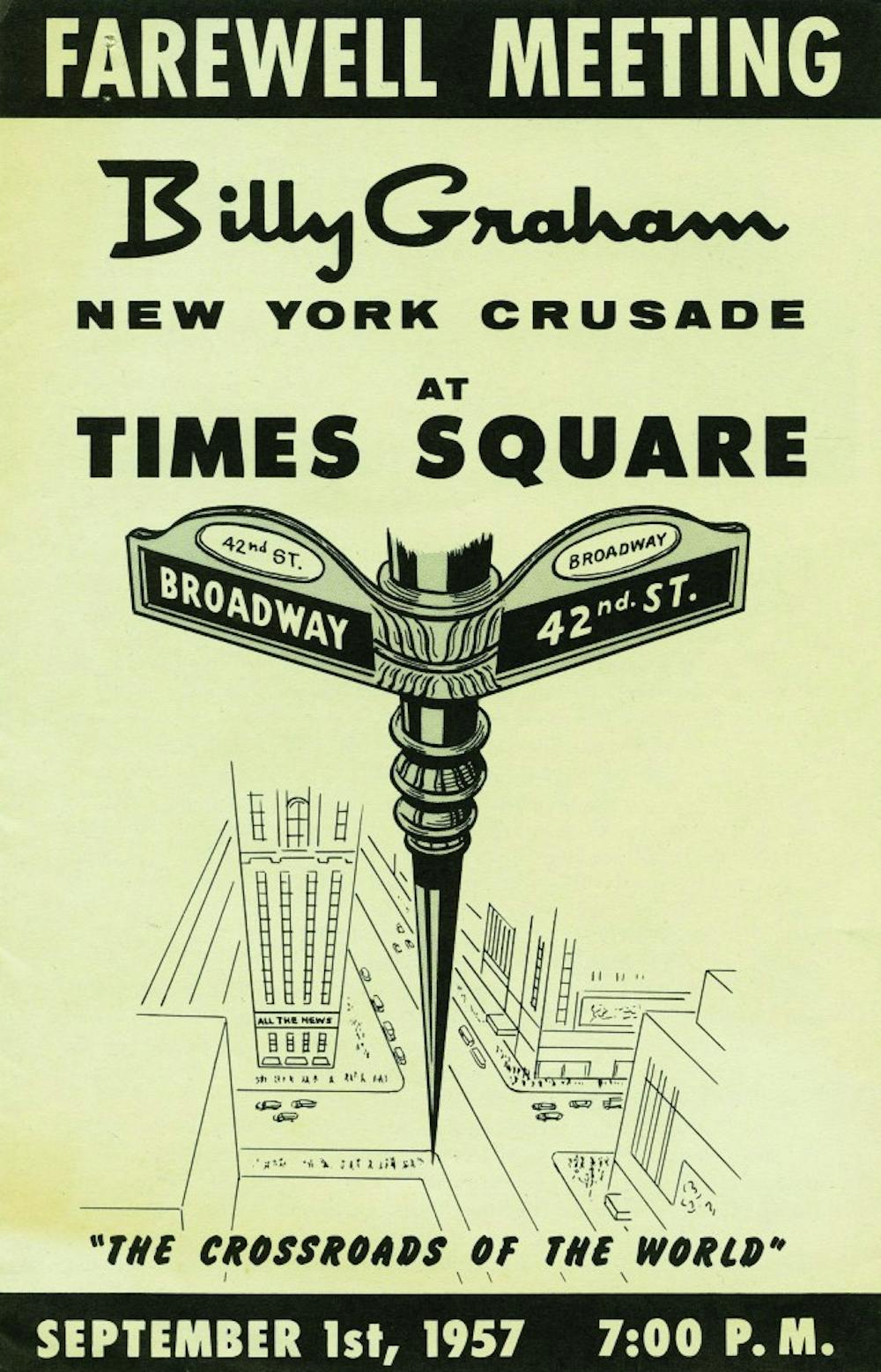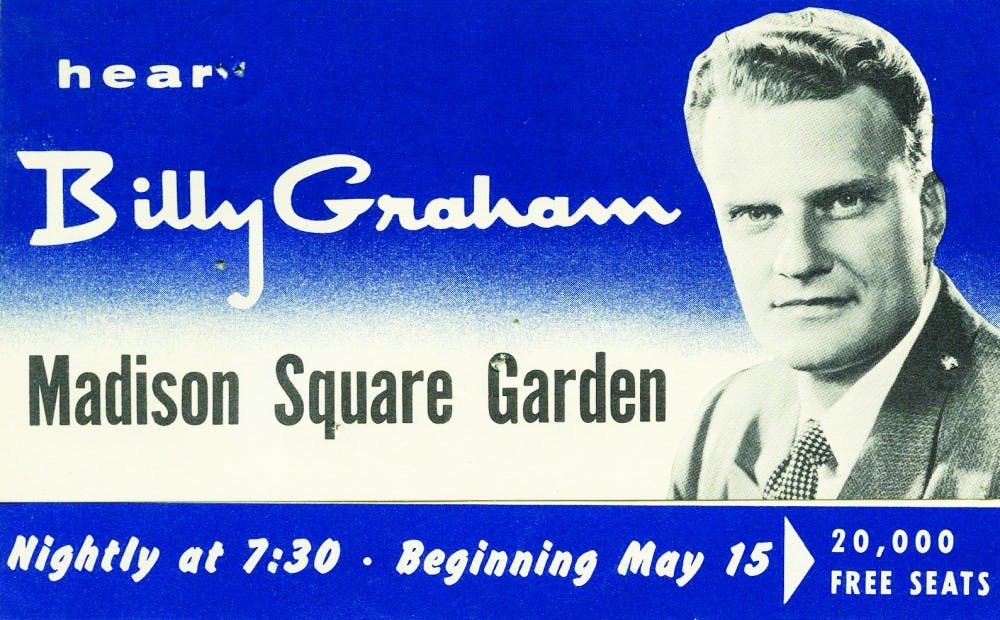By Katie O'Connor | Echo
News of the Rev. Billy Graham's death sparked emotional responses worldwide last week, but husband and wife Alan Winquist and Jessica Rousselow-Winquist, retired professors of history and communication respectively, hold personal connections to him.
Widely regarded as the nation's pastor, Graham poured himself into organizing over 400 crusades leading thousands in committing their lives to Christ; the Rev. gave and received love extensively. It was through their respective positions with the Billy Graham Evangelistic Association (BGEA) years ago, that Winquist and Rousselow-Winquist had the unique opportunity to personally know Graham.For Rousselow-Winquist, it was a job hunt her freshman year of college that led her to the headquarters of the BGEA. When a new crusade began in the Minnesota area where Rousselow-Winquist attended Northwestern College, it was the BGEA's policy to hire part-time workers to deal with the influx of mail that would inevitably come in. In an effort to find any job other than housekeeping to pay for her college education, Rousselow-Winquist accepted a role recording mailed-in donations by way of typing receipts."All donations, even if they were a dollar, were receipted (with a 'thank you')," Rousselow-Winquist said. "No one was not recognized."Just a few steps away from where Rousselow-Winquist typed receipts, there was another group of women working. These women would receive big folders full of letters as well, but their task differed from that of Rousselow-Winquist's; the letters they received didn't contain donations. The women still read and prayed over each letter they received.
The building was packed with four floors of employees all driven by the same goal: to create and maintain connections with the community of people who attended the Billy Graham crusades and who donated to the organization. Graham's authenticity and unique leadership of the association shone brightly through the workplace environment fostered at the headquarters.

"It was an impressive place," Rousselow-Winquist said. "I believe Graham really did want to change the ethos of televangelists; they did things differently."On the East coast, Winquist got his own taste of the Billy Graham crusades. In May 1957, a crusade began, this time in New York City.
Winquist's church went "gung-ho" for the crusades and got heavily involved in the festivities. The events radiated energy, and Winquist remembers he and his family getting swept up in all the excitement.
"It was very electric in New York; I mean everyone was talking about it," Winquist said, a grin stretching across his face. "I joined the choir, and I don't sing (very well), but I joined!"The New York crusade swelled with 20,000 people in Madison Square Garden every night, with Winquist as a regular attendee. With tremendous press coverage and overflowing energy, the crusade, originally intended to last three weeks, ended up getting extended four months' time.From Yankee Stadium to Times Square, thrilling rallies popped up all over the city. It was on a ferry boat ride to the Staten Island rally that Winquist met Graham himself."I got his autograph; it was a big deal for me," Winquist said through a chuckle.
Winquist went on to convey his powerful experiences at the crusades, which ended up influencing his decision to attend Graham's alma mater, Wheaton College, to obtain his undergraduate degree.One of the things Winquist admired most about Graham was his insistence on preaching to racially integrated audiences, which was an especially significant endeavor given the recent onset of the Civil Rights movement at the time. In one instance, Graham refused to crusade in South Africa unless blacks and whites could sit together. Winquist illustrated Graham's persistence and confidence with this breakthrough of integrated audiences in South Africa.Dubbed the nation's pastor for his counsel to presidents and people of all backgrounds, Graham's impact worldwide will not soon fade."It's the end of an era," Winquist said. "I don't think we're going to see anyone quite like Billy Graham anymore."



